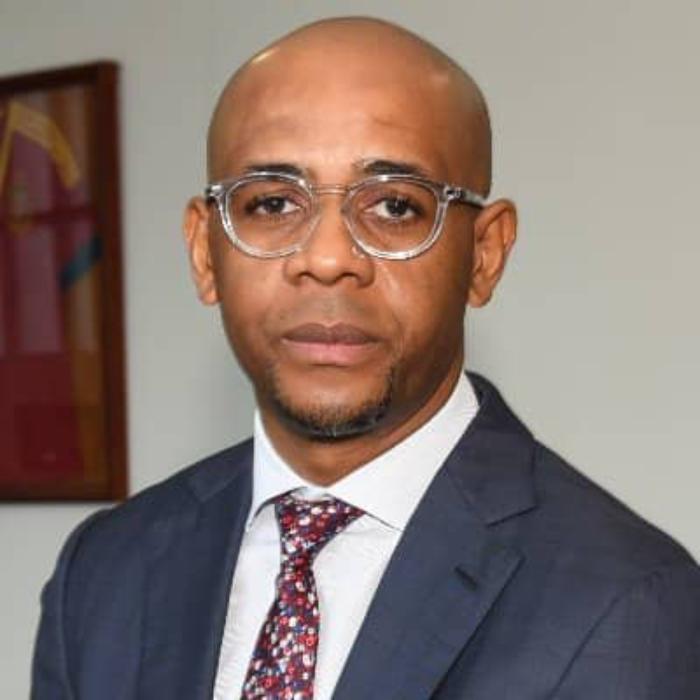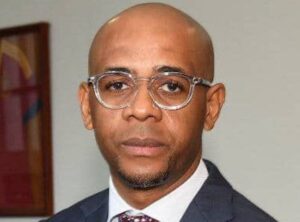
President of Equatorial Guinea Sacks Nephew Baltasar Engonga Over Allegations of Corruption and Scandalous Affairs — Power Struggles or a True Stand Against Corruption?
In a move that has rocked the political sphere of Equatorial Guinea, President Teodoro Obiang Nguema Mbasogo recently dismissed his nephew, Baltasar Engonga Edjo’o, from a high-ranking government position amid allegations of corruption and an alleged scandal involving personal affairs. While supporters hail this as a decisive stance against corruption, critics suggest it may be more about consolidating power and limiting rivals within the ruling elite. Is this move a genuine bid for transparency, or merely another strategic shift in the country’s complex web of political power?
—
The sacking of Baltasar Engonga Edjo’o is not only making headlines in Equatorial Guinea but has also drawn international attention, highlighting the intertwining of power, family loyalty, and allegations of corruption within the country’s administration. The 81-year-old President Teodoro Obiang, who is the longest-serving head of state in the world, has faced widespread criticism for his ironclad rule over Equatorial Guinea, a regime characterized by limited democratic freedoms, reports of human rights abuses, and persistent issues of financial transparency. This recent development, involving the removal of Engonga — a nephew and close confidant — underscores the intensifying power struggles within the elite circles of the ruling family.
Background: A Political Dynasty Under Scrutiny
The Obiang family’s grip on Equatorial Guinea is unparalleled in African politics. President Obiang, who has been in power since a coup in 1979, has fostered a political culture in which family members occupy critical roles across government and military institutions. His son, Vice President Teodoro Nguema Obiang Mangue (known as “Teodorin”), has often been portrayed as a possible successor, with power consolidations moving increasingly in his favor in recent years.
But with reports of corruption emerging across different wings of the government, including allegations against Teodorin himself, many have questioned how far President Obiang is willing to go in tackling misconduct within his family — or if his intentions are less about accountability and more about selective purges to fortify his son’s succession.
The Allegations: Corruption and Scandalous Affairs
Baltasar Engonga Edjo’o has held various prominent roles in the government, particularly in ministries linked to economic development. His dismissal reportedly follows a scandal involving financial mismanagement, embezzlement of state funds, and alleged personal misconduct involving extramarital affairs. These allegations come at a time when Equatorial Guinea’s economic landscape is struggling, largely due to fluctuating oil prices and limited diversification efforts. In a country where public funds are often directed by political elites, financial improprieties are hardly a new phenomenon. However, the President’s decision to take action against his own nephew, one of the most powerful members of his inner circle, signals a rare step — but one that raises questions about the underlying motives.
Sources close to the situation allege that the recent decision was prompted not only by concerns over state funds but also by frustrations with Engonga’s potential influence. Despite being Obiang’s nephew, Engonga’s close associations with certain international players and business interests had sparked speculation that he could emerge as a potential rival to Teodorin. In a regime where loyalty is paramount, even close family ties can falter if perceived allegiances waver.
The Public Reaction: Mixed Sentiments
In Equatorial Guinea, public reactions to political developments within the ruling family are often muted, partly due to restrictions on freedom of expression. Yet within diplomatic circles and among political analysts, Engonga’s sacking has stirred debate. Some are cautiously optimistic, seeing this as a sign that President Obiang may finally be addressing corruption within his administration — a much-needed step for a country long accused of rampant graft.
However, many remain skeptical, pointing out that no charges have been formally brought against Engonga. Critics argue that the President’s decision reflects selective accountability rather than a genuine fight against corruption. Dismissing Engonga may allow Obiang to demonstrate a veneer of reform without actually confronting the structural issues that sustain corruption in the first place.
Power Consolidation for Teodorin: An Open Secret?
The timing of Engonga’s dismissal is particularly intriguing when viewed in the broader context of President Obiang’s efforts to secure his son Teodorin’s succession. Over the past decade, Teodorin has steadily gained power, despite facing international criticism and legal battles abroad related to alleged embezzlement and money laundering. By removing Engonga — a potential rival within the family network — President Obiang may be strategically clearing the path for Teodorin’s future.
If the decision to sack Engonga is indeed part of an orchestrated effort to ensure Teodorin’s ascent, it could be a sign of what is to come for Equatorial Guinea’s political landscape. Many question whether this pattern of loyalty-driven purges will continue, potentially impacting other powerful figures in the country who may be seen as obstacles to the Obiang dynasty’s plans.
International Perspective: Calls for Transparency
International observers have reacted with cautious interest to the news of Engonga’s dismissal. Organizations focused on human rights and anti-corruption have long pressed Equatorial Guinea to improve its governance practices and reduce the power of the ruling family over national resources. However, these groups remain skeptical about the recent actions, urging the Obiang regime to enforce meaningful transparency, investigate financial abuses openly, and end selective purges disguised as anti-corruption measures.
Equatorial Guinea’s reputation has been further strained by its restrictive stance toward journalists and activists, a policy that limits international scrutiny and compounds the challenges of accurately reporting on the country’s internal affairs. For genuine progress to occur, analysts argue that President Obiang must allow independent investigations and increase the autonomy of oversight institutions — changes that appear unlikely under the current administration.
The Future of Equatorial Guinea’s Leadership: What Lies Ahead?
The dismissal of Baltasar Engonga Edjo’o is yet another twist in the complex power dynamics within Equatorial Guinea’s ruling family. While some may interpret this move as a step towards accountability, others view it as a calculated maneuver to bolster Teodorin’s path to succession. Whatever the case, the scandal underscores the need for a transformative approach to governance in Equatorial Guinea — one that moves beyond purges and familial loyalty and toward true institutional reform.
As the Obiang family tightens its grip on power, the country’s future leadership remains closely guarded within their ranks. Whether this latest scandal will lead to genuine change or merely reinforce the status quo is yet to be seen. But one thing is clear: the power struggles within Equatorial Guinea are far from over, and the country’s citizens and the international community alike will be watching closely to see if real accountability will ever take root within this isolated African nation.






